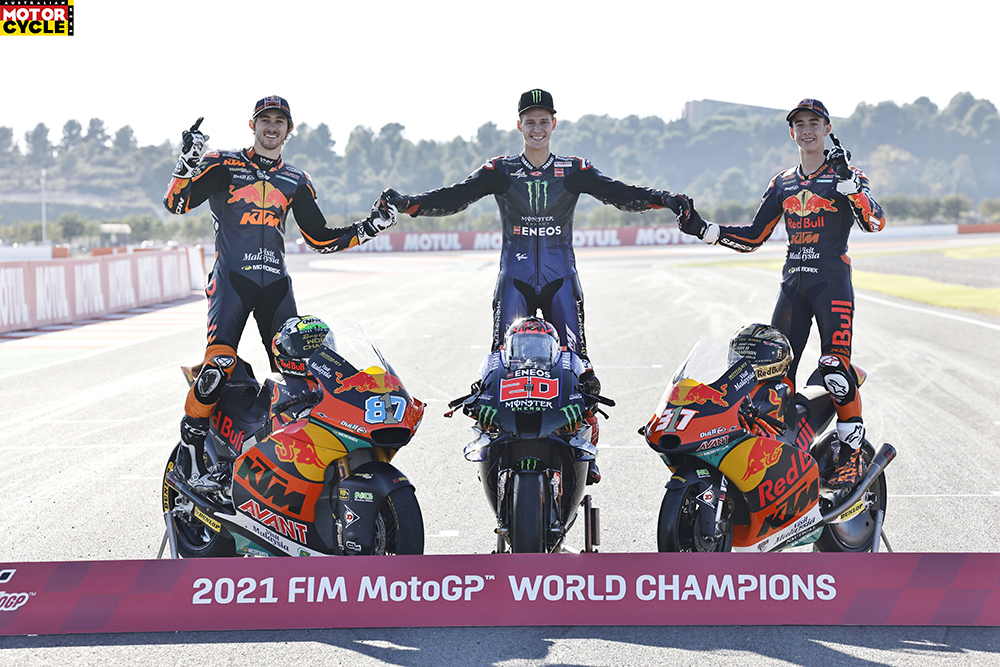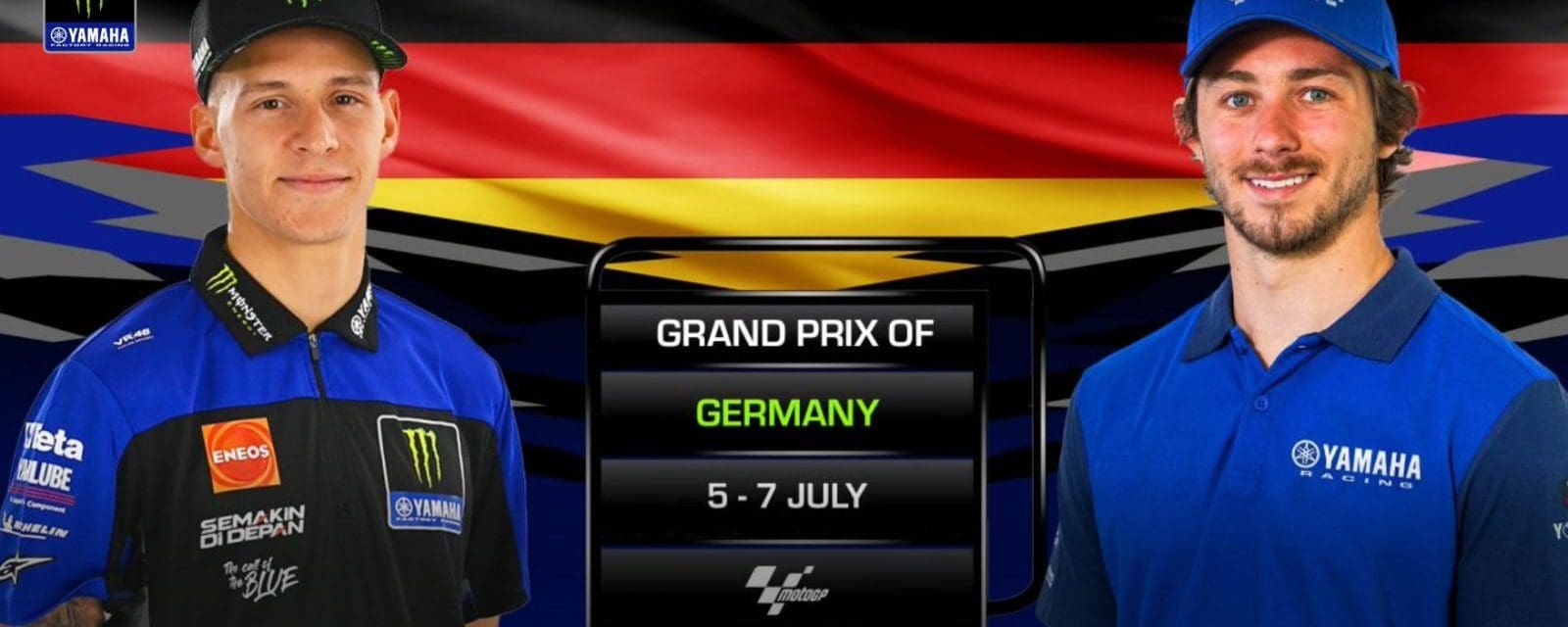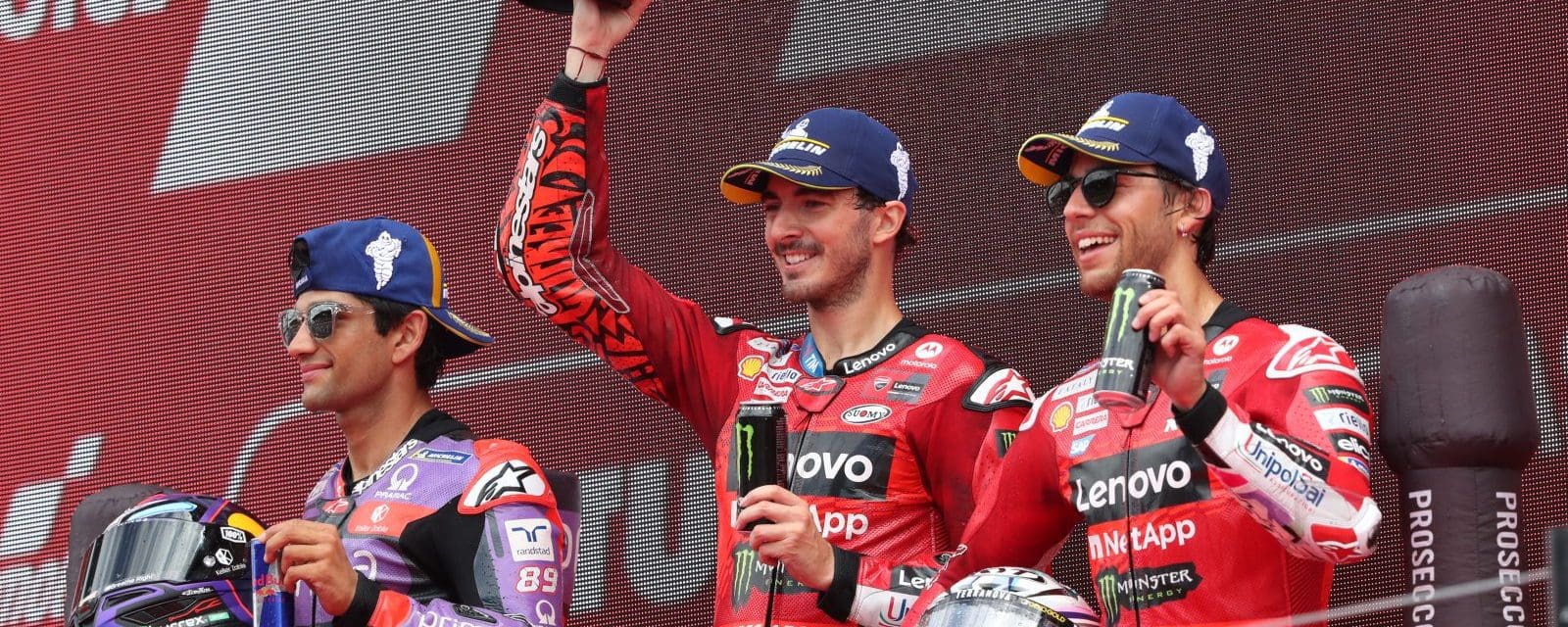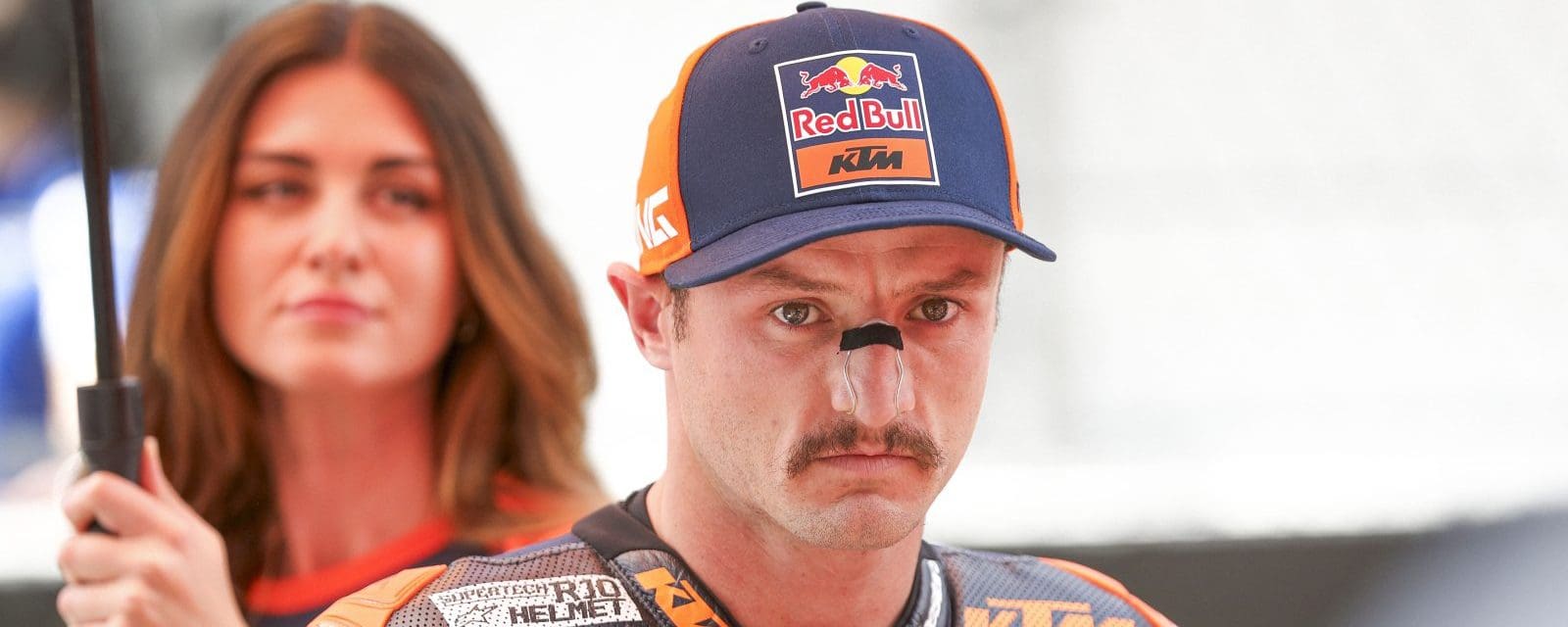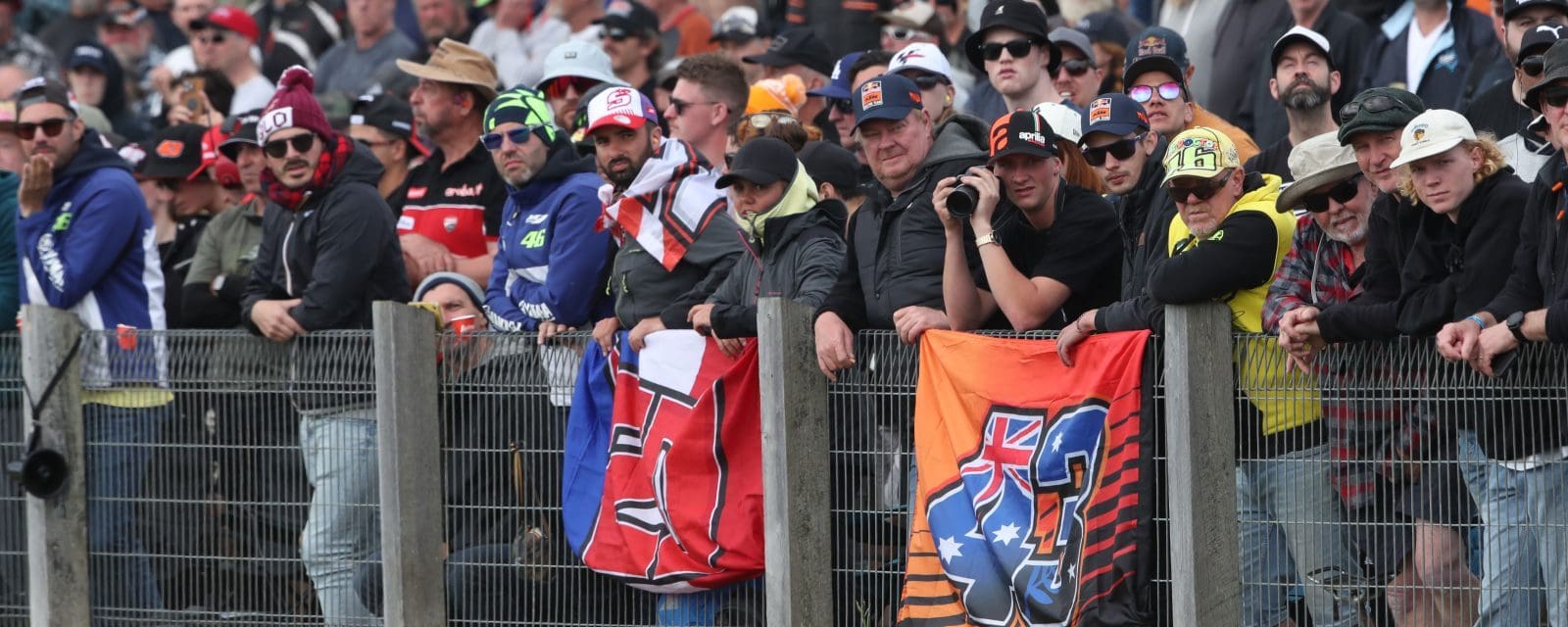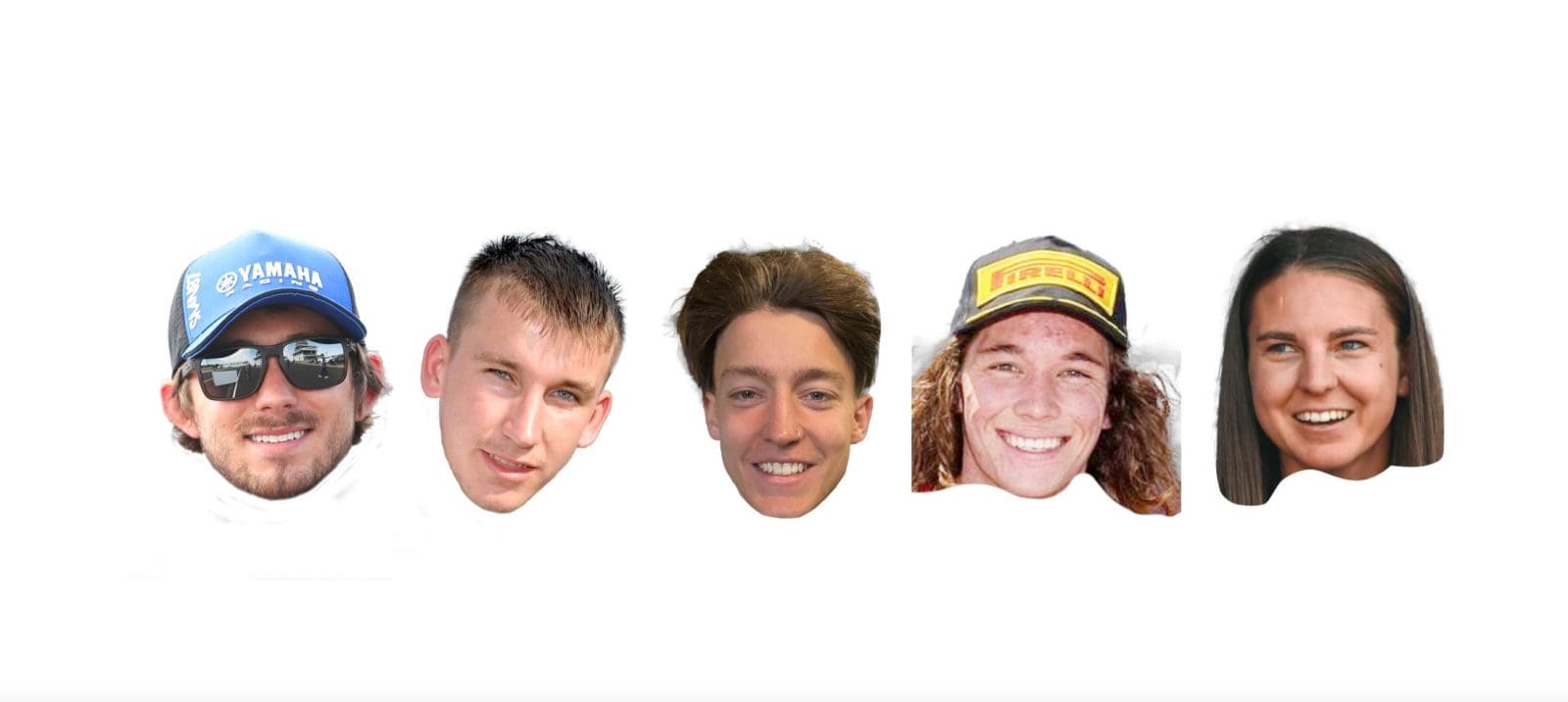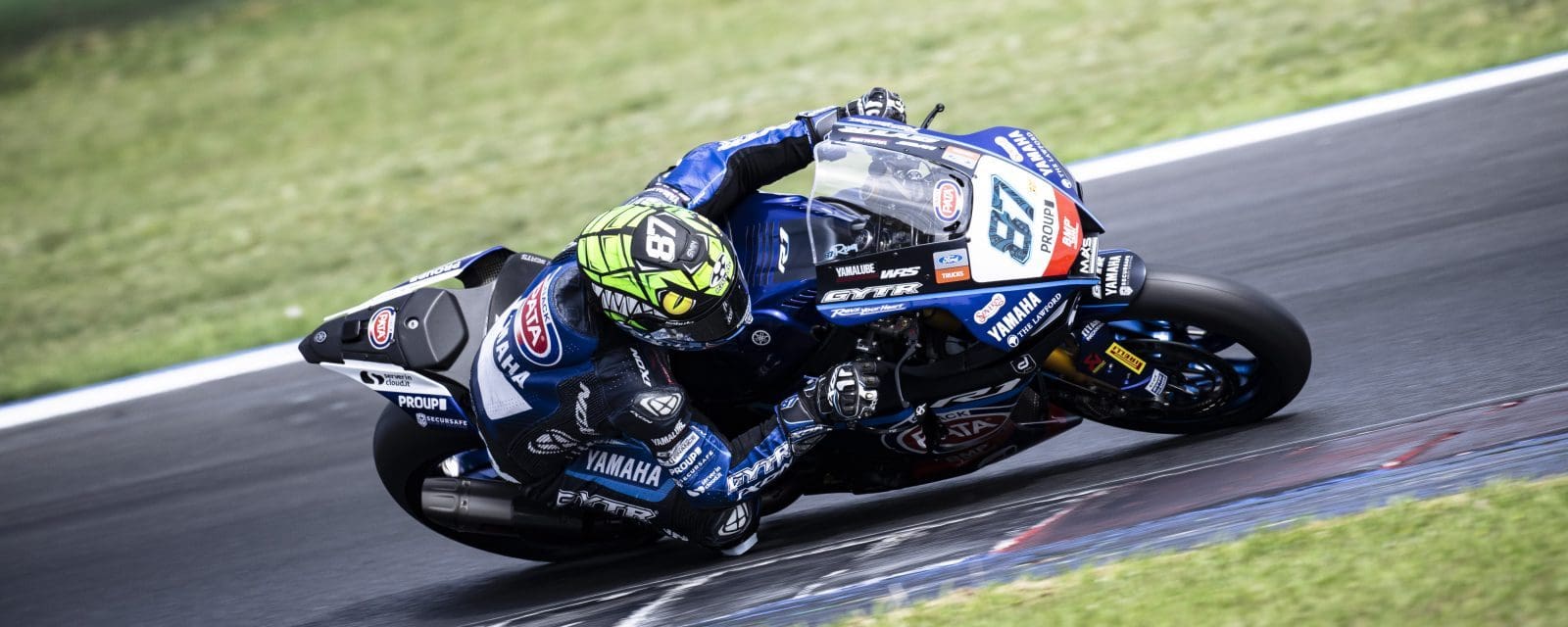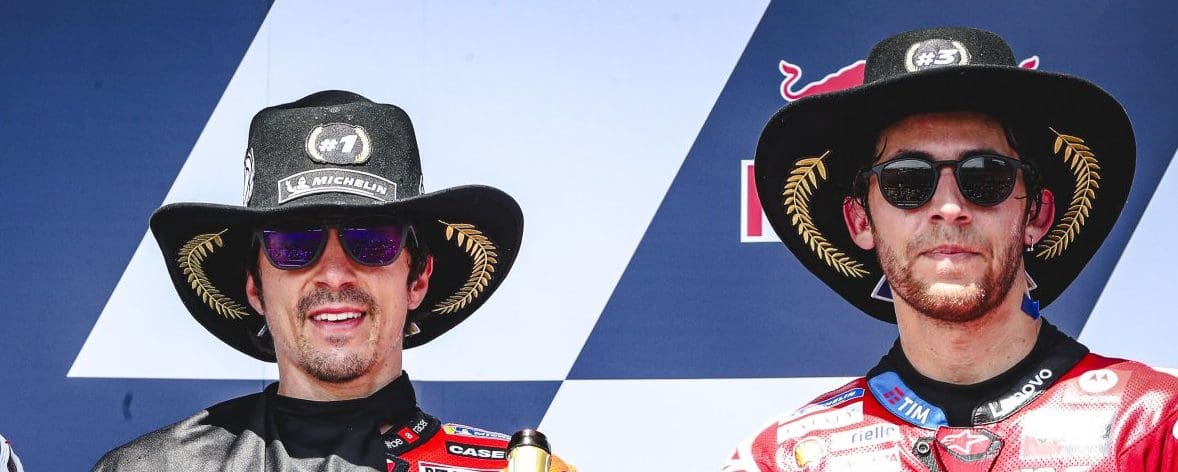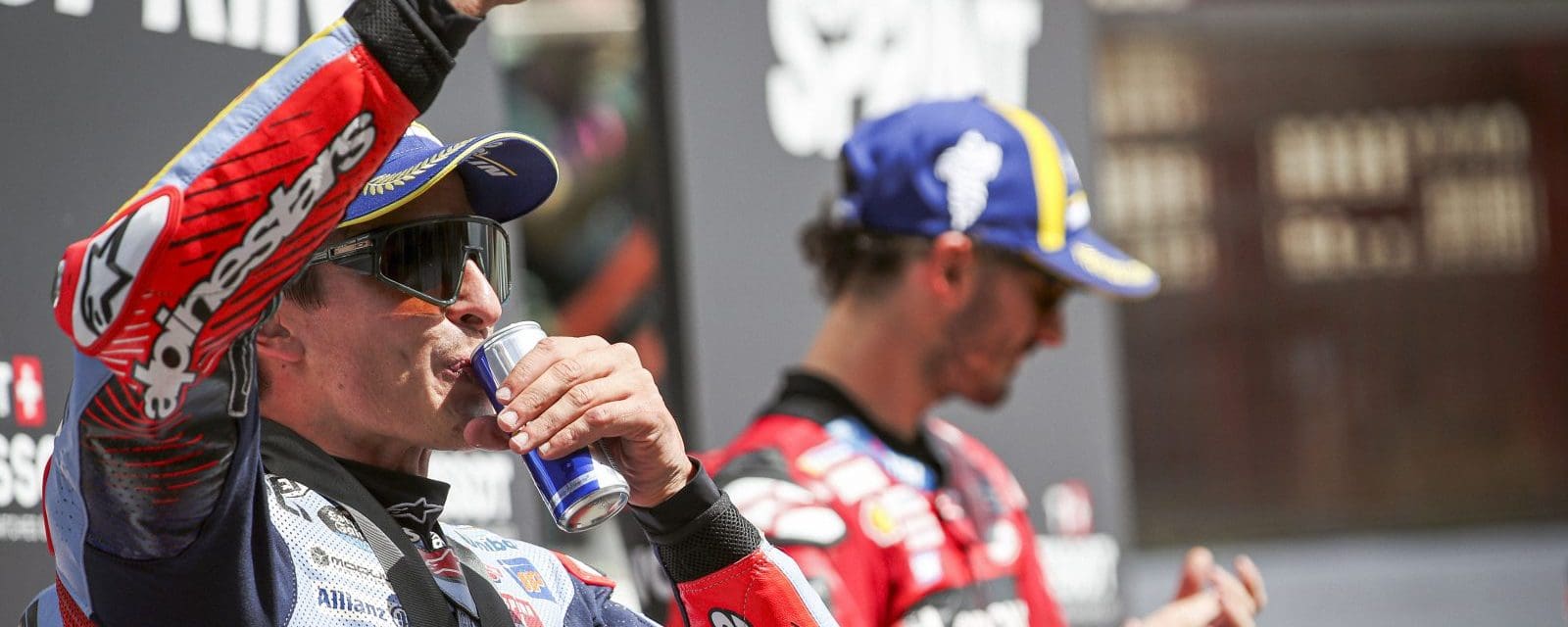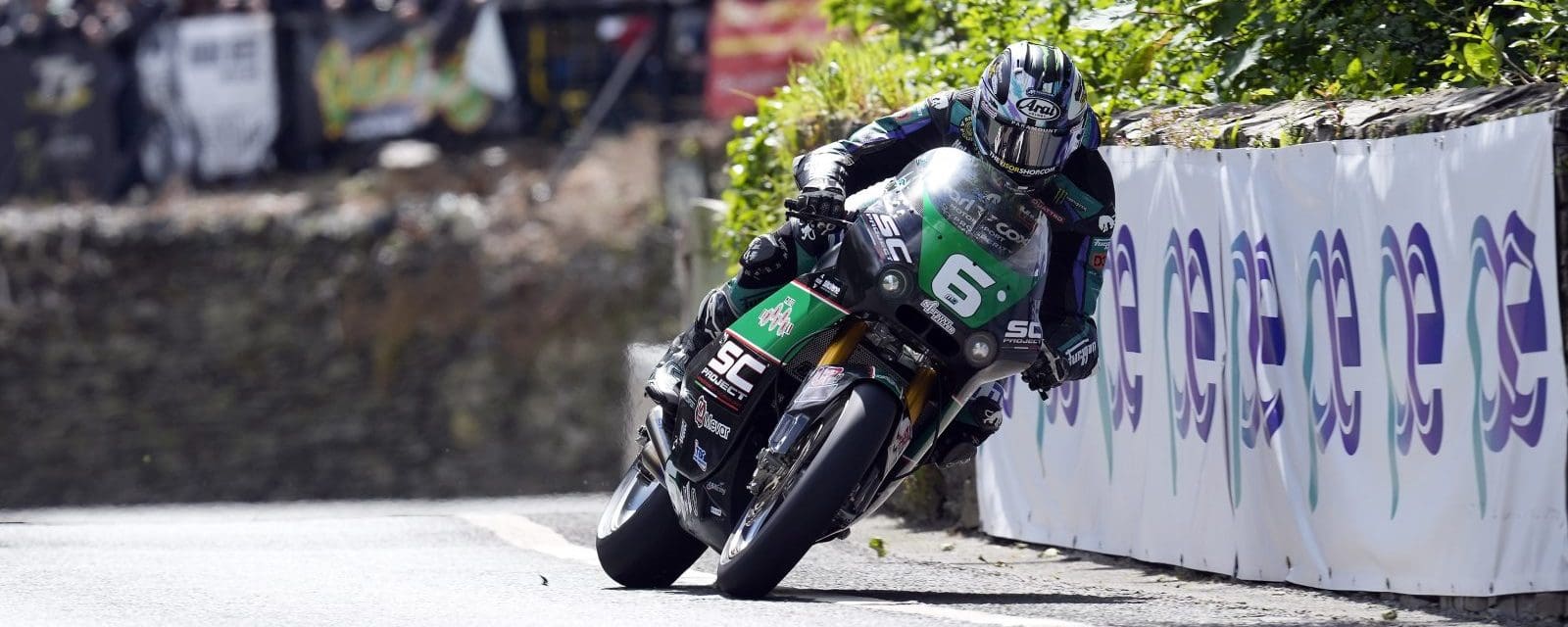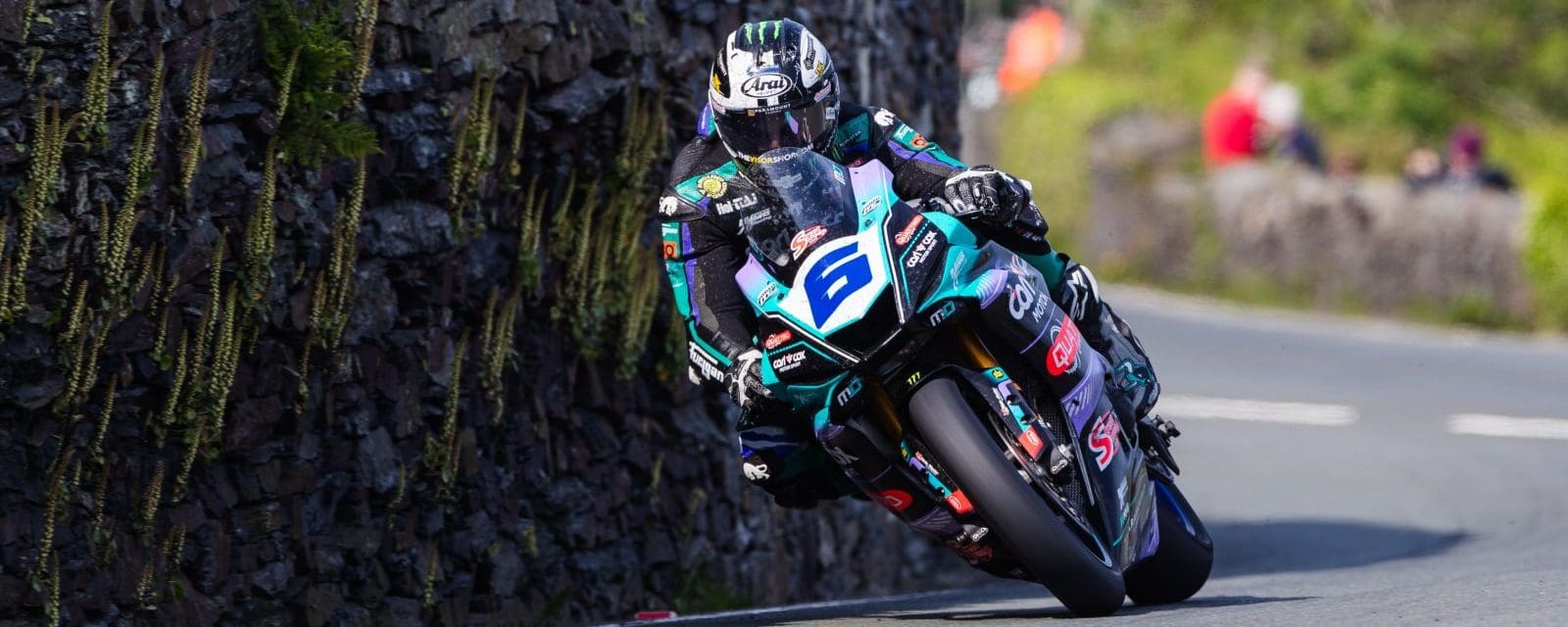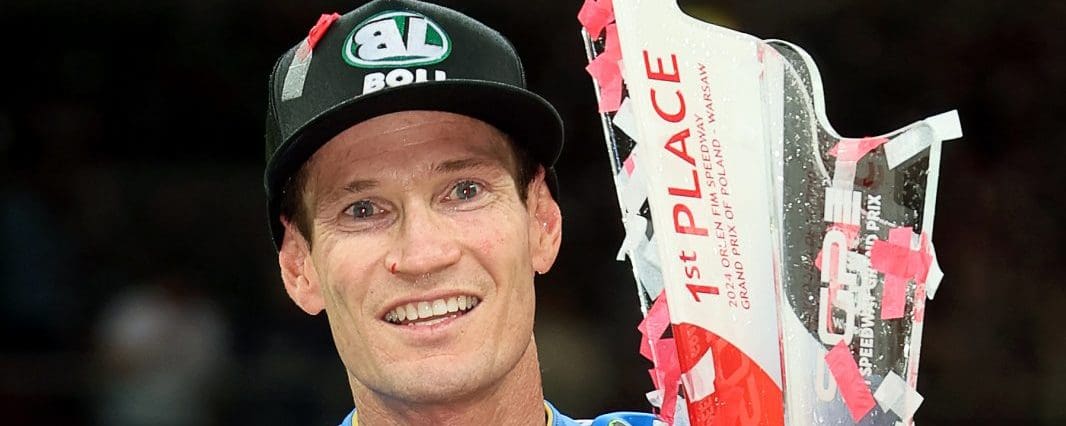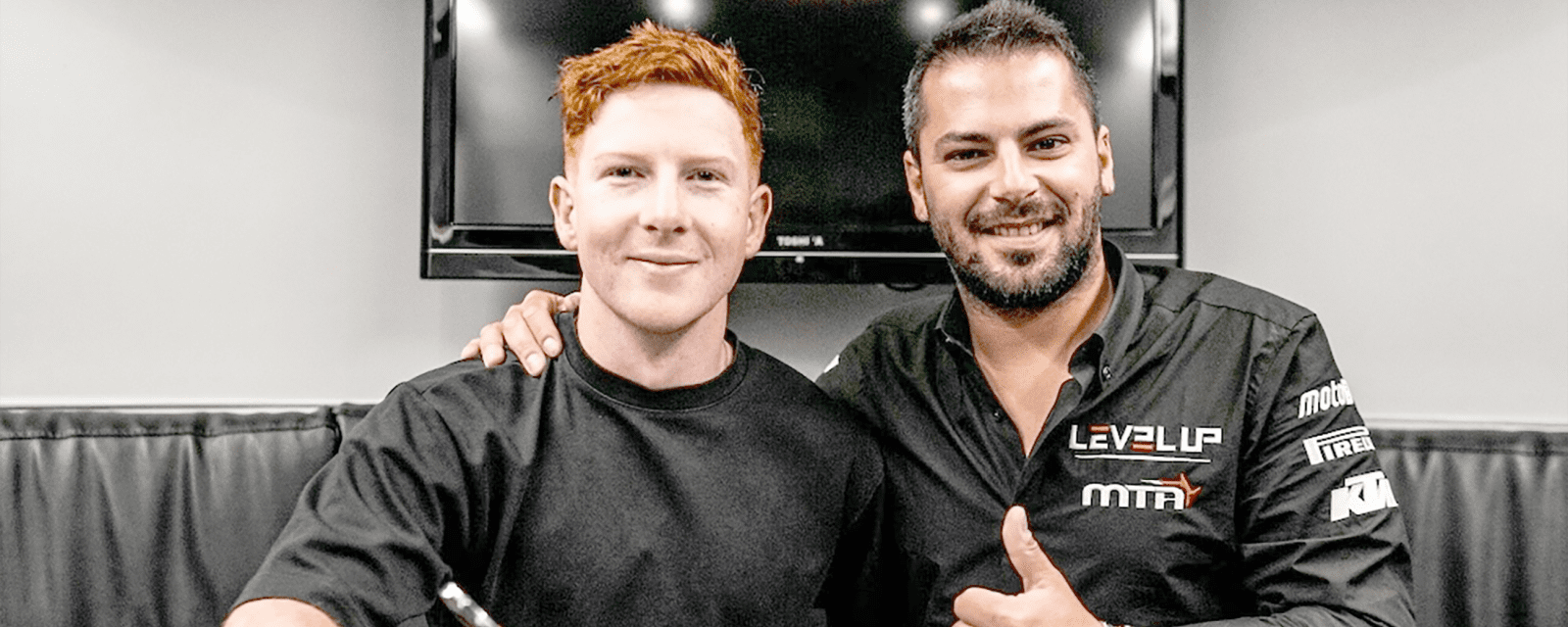The 2021 Moto2 season will forever be remembered for the vintage fight between Remy Gardner and Raul Fernandez. The teammates could barely be separated after a year of all-out war on track. There were nerves at the end. But Gardner’s ride to 10th place in Valencia was enough for the Australian to win the 2021 Moto2 World Championship.
The somewhat muted performance in Valencia didn’t quite tell the story of a season of sustained brilliance for the Australian. Five wins only tells part of the story. Gardner was devastatingly consistent, finishing all 18 races inside the top 10 bar one, amassing 12 podiums in that time. The 23-year-old walked away from the final round with the fourth-highest point average per race in the history of the Moto2 class.
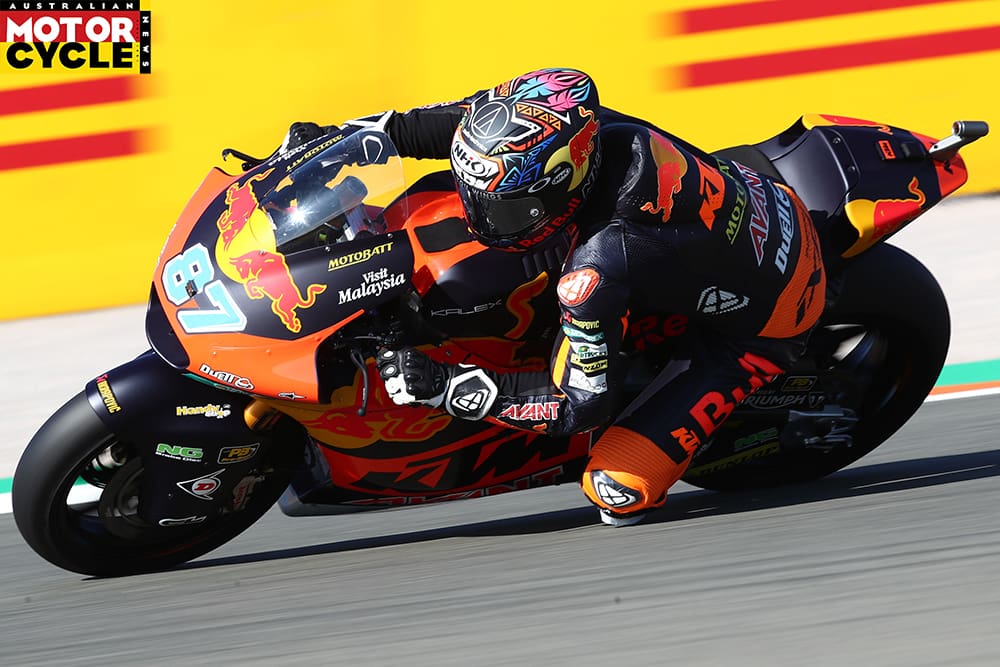
In that time, Gardner racked up new records for Australians in grand prix racing’s intermediate class. His world title was the first for an Aussie aboard either a 250cc or Moto2 machine since Kel Carruthers in 1969. In June, he was the first Australian to ever win three races on the bounce. And after father Wayne’s 500cc title in 1987, the Gardners are only the second family in history to have a father and son win grand prix championships.
“It’s definitely been an intense season,” Gardner said after his Valencia success. “Raul really made me work for it, but it’s been amazing. So many podiums. So many great races. So many trips to parc fermé. Five wins. There were times I’d come second and think, ‘God, that was a bad day.’ But you’ve just got to enjoy every moment.”
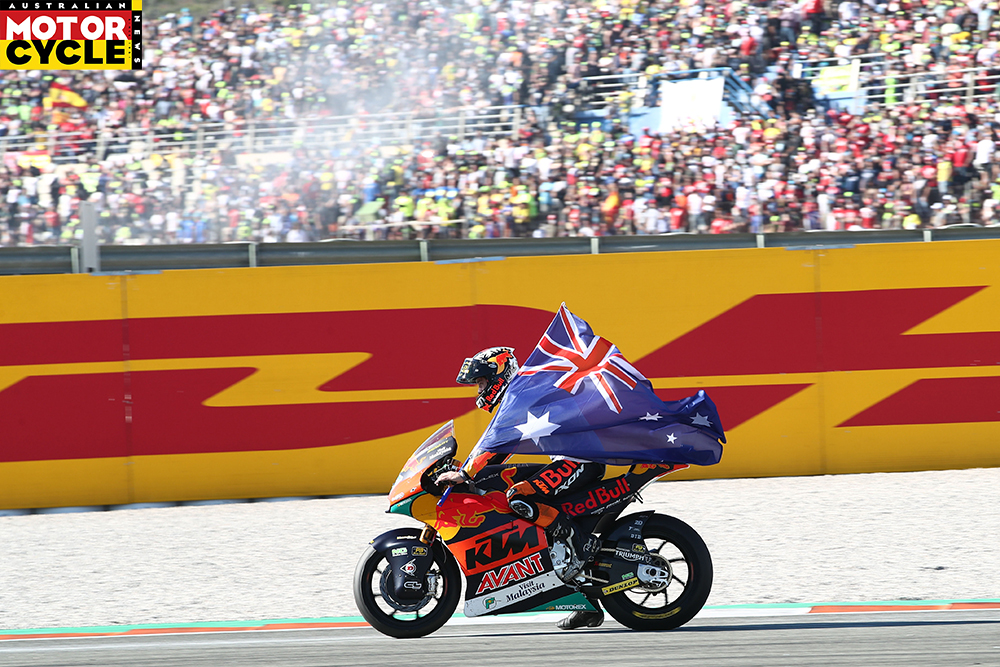
Laying the groundwork
Speaking to those close to Gardner, they believe the foundations of this year’s success were laid last year. At the start of 2020, the rider from Sydney had reasons to be down. He had just lost crew chief Alfred Willeke – a figure he charged with turning his fortunes in Moto2 around – to a rival team. His SAG Racing team hit financial difficulties, and he had to spend the season on a year-old Kalex frame. And all after he turned down a chance to ride for KTM in MotoGP the previous year.
But during the Covid-enforced break, Gardner had his first contact with team boss Aki Ajo, a man who had overseen world championship success with names like Marc Marquez, Jorge Martin and Brad Binder in the past.
“The story with Remy started last year in May, during the Covid break,” said Ajo. “We started to have contact after Wayne messaged me to maybe help Remy in the future and I started to have more and more contact with him, especially when the season started again.
“We’d sit down every other weekend, even when he was with another team, to talk about life, the future and I tried to understand him a bit more. I also wanted to know if Remy would be the right decision for our project. I remember in Red Bull Ring I finally explained to our bosses at KTM and Red Bull and said to them, ‘I feel he is the right guy.’ They thought the same. We closed the deal and we started to work even more intensely.”
Despite Ajo feeling Gardner might be a decent fit for his team, it wasn’t as though the pair shared the same outlook from the start.
“I remember our face-to-face talks were quite intensive, tough and emotional,” Ajo recalled.
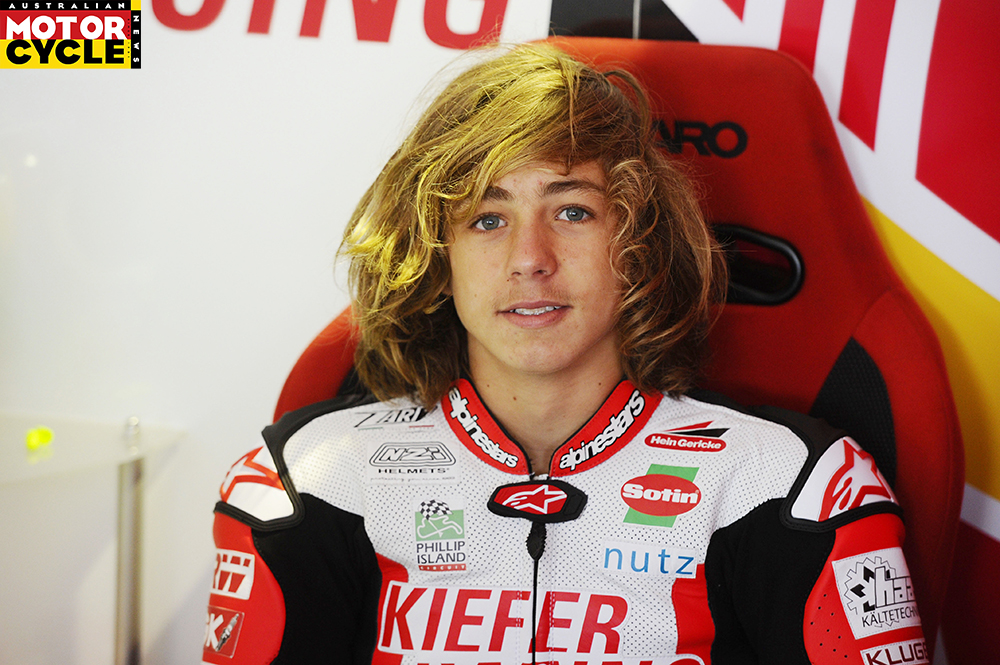
“I would not say we were fighting but we had some different opinions and I was quite clear that I believed in him and I liked his style but quite a lot would have to change with the attitude if we worked together. He was really technical at this moment and talking technical details. For me, it was too much.
“He also had some doubts, whether he brought them himself or from people around him, in his head that he was too heavy and the bike is slow because of this-or-that. I was shooting everything down in the first moments when we started talking and he was quite shocked. But I also felt that this guy was quite strong because I saw him emotional but also quite accepting and he was quickly ready to start the work. I thought: this is the first good sign. This was the start and we went step-by-step moving him into the team and with his new crew.”
The Finn began working as an advisor for Gardner when the 2020 season eventually restarted last July. He signed him up to his team for 2021 within months. But for a few off days and a crash at 250km/h during warm up for the San Marino GP, which broke a hand, it ended up being his most consistent season to date. He ended the year with six consecutive finishes in the top seven, including a breakthrough first win at the final race in Portugal.
So strong was Remy that day, Luca Marini, his closest rival, was baffled by his speed.
“Remy’s race didn’t make any sense,” shrugged the Italian. That gave some excellent momentum going into 2022.
“I really changed my chip last year,” said Gardner of when his fortunes changed.
“Everything started going better. Even though I didn’t have the most podiums in the world, I just managed to get my mind under control. A lot of things fell into place and I just tried to keep more positive about things. From 2015 to 2019 they were tough years for me. There were points in my career when I believed that was it, especially after a serious injury.”
You can read more about Remy’s journey to Moto2 here
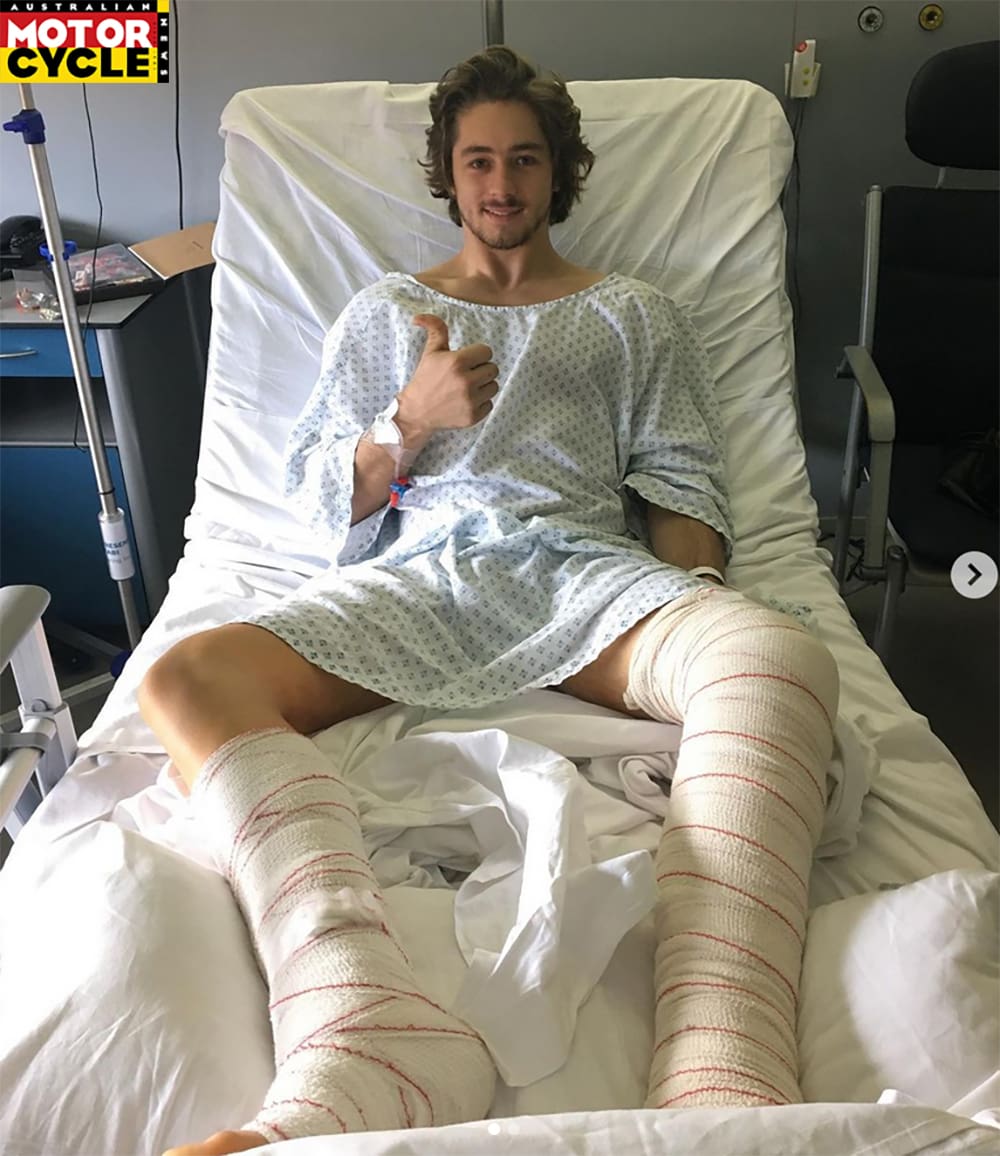
A flying start
Once riding in the Ajo squad, Gardner enjoyed a strong preseason of testing. Teamed up with crew chief Massimo Branchini, who tasted world championship success with Johann Zarco in the past, the goal was set of continuing what he did in the autumn of 2020: racking up top six finishes week after week.
“He showed good performances in the past but the consistency was not there,” explained Branchini. “Sometimes he did a good race, sometimes very shit, sometimes he made a mistake in strange moments. The first point we told Remy he had to finish every race. We started with this mentality at the start of the year.
“He was constant. We thought, ‘Okay, we have to improve our last details.’ Remy did one incredible step. This year he kept his speed but started stronger in the race. He didn’t do many mistakes. This made him a very strong rider every week.
“It wasn’t like this was his last chance, but he was already in Moto2 for some seasons. He’s famous maybe for making a lot of mistakes. I think he realised he had to do his job in the best way possible. Also, inside of Ajo motorsport, you don’t miss anything. You don’t have to worry about technical support or anything like that. You just have to focus on your job: riding and not making mistakes. This kept him very calm.”
Gardner started the season brilliantly, twice finishing second behind Sam Lowes in the opening double-header under the floodlights in Losail. Even then, Ajo had to remind his new rider of the goals they had set.
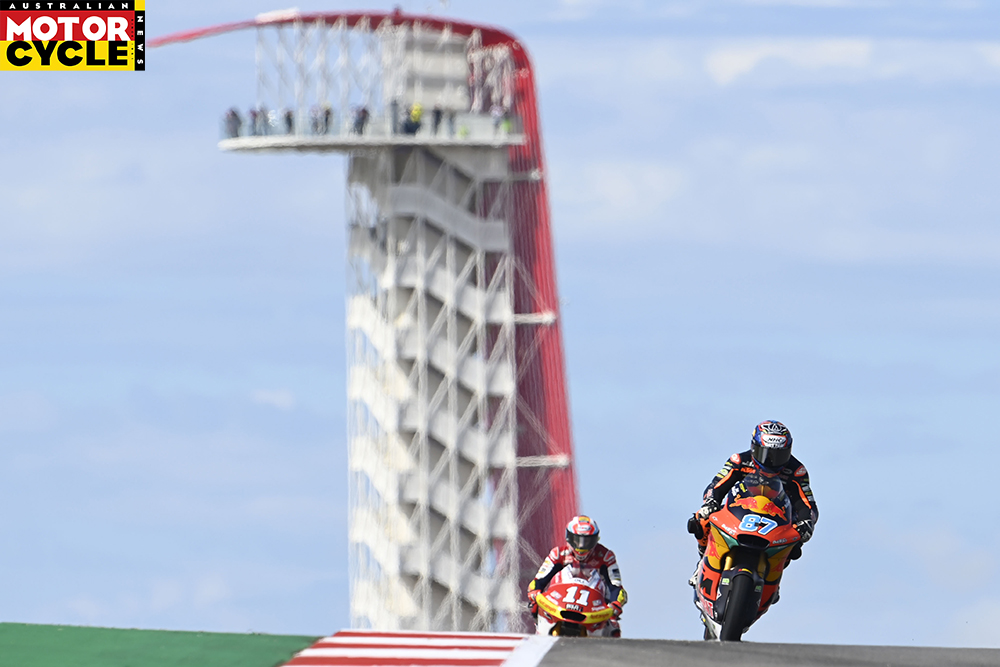
“I always say to my riders: racing is simple and we keep it simple,” said Ajo. “For me it is also something we learned this year: that it is much simpler than you thought in the past.
In this way I think he started to trust himself more and learn – like with all our riders – that there are no excuses and you should always get to the point. This is something that I saw [in him] in the wintertime but it was getting better and better.
“I remember in Qatar the ‘old’ Remy was again looking at the times, starting to get nervous and make mistakes but it was only in the first races and he learned really quick when we were talking together with his crew. I explained in a simple way: Sam Lowes is our reference. We don’t need to hurry. In the middle of the year we will catch Sam and then in the last quarter we beat him every race. That will be enough.
“I was trying to make him calm. Take your time, make your steps, set realistic targets. If we are doing better, then no problem. But we don’t need miracles in a week.”
Remy ended the first half of the season with three commanding wins, scored at Mugello, Barcelona and the Sachsenring. In the first nine races, he finished off the podium just once. And a fourth place at Jerez was hardly a disaster. Early contender Lowes had fallen away, suffering three crashes in crucial moments. And Marco Bezzecchi, another preseason favourite, had never quite found the speed to challenge for wins. Instead, the fight was coming from the other side of the box. But surely handling a rookie should be a straightforward task.
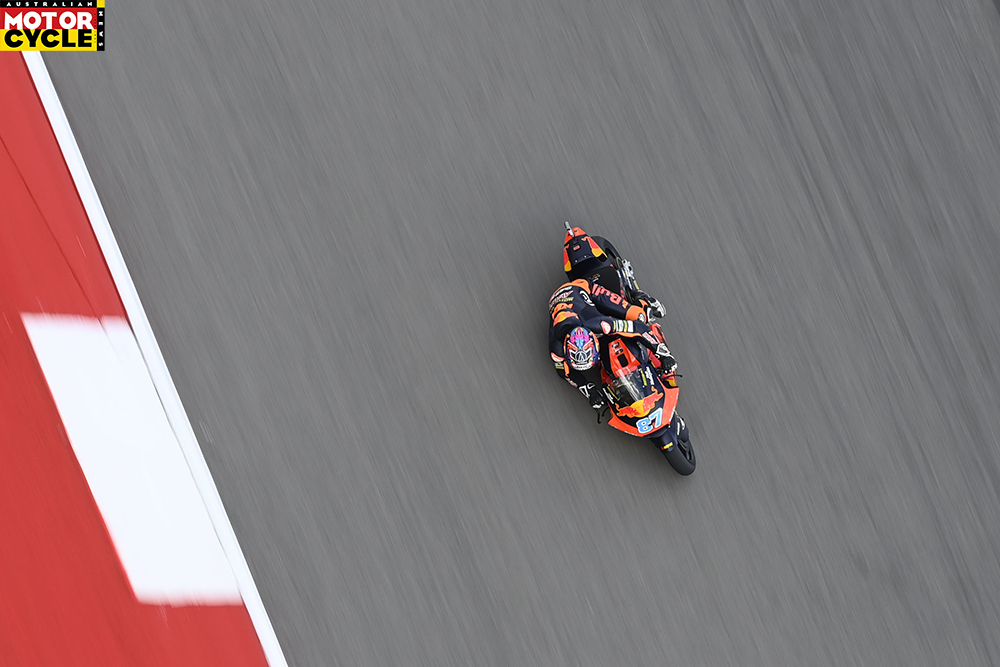
A nervy autumn
Much to the surprise of everyone, pressure from teammate Fernandez intensified. No one expected the class rookie to be challenging for race wins all year. Yet once August rolled around, it was clear that he was going to be a player in the title fight. After the Austrian Grand Prix, which Fernandez won brilliantly with Gardner a disappointing seventh, the Australian looked flustered for the first time all year.
But the dominance of the Ajo team is what stood out. By the end, the Finnish team would rack up seven 1-2 finishes. And they had tied up the Moto2 Teams’ Championship with four races to spare. The secret to this was an open environment inside the box, where all data was shared.
“On one lap someone is better here, another one there,” explained Branchini. “Inside our box everything is shared. So, it’s possible for both riders to check, ‘I’m good here, but it’s possible to adjust on this other corner.’ Both adjusted and went faster. When they started fighting for the title – one rider won a race, the other the next – competition inside the team is normal. This put the level higher and made the difference.”
A fiercely contested Misano GP saw Fernandez win and Gardner second. But then came the first slip-up of the season in Austin, when the Australian crashed out and his rival won for the third time on the bounce. But in the past, Gardner has been emotional, stroppy even, bemoaning his situation. On this occasion he accepted his mistake and was present in the Ajo garage congratulating Fernandez’s mechanics on their latest win.
Then a crucial moment in the second Misano bow: Gardner was struggling in seventh and had just been handed a Long Lap Penalty for taking out Somkiat Chantra, while Fernandez was leading. But finally the rookie’s inexperience showed, as he crashed out a lap after taking the lead. Remy had dodged a bullet.
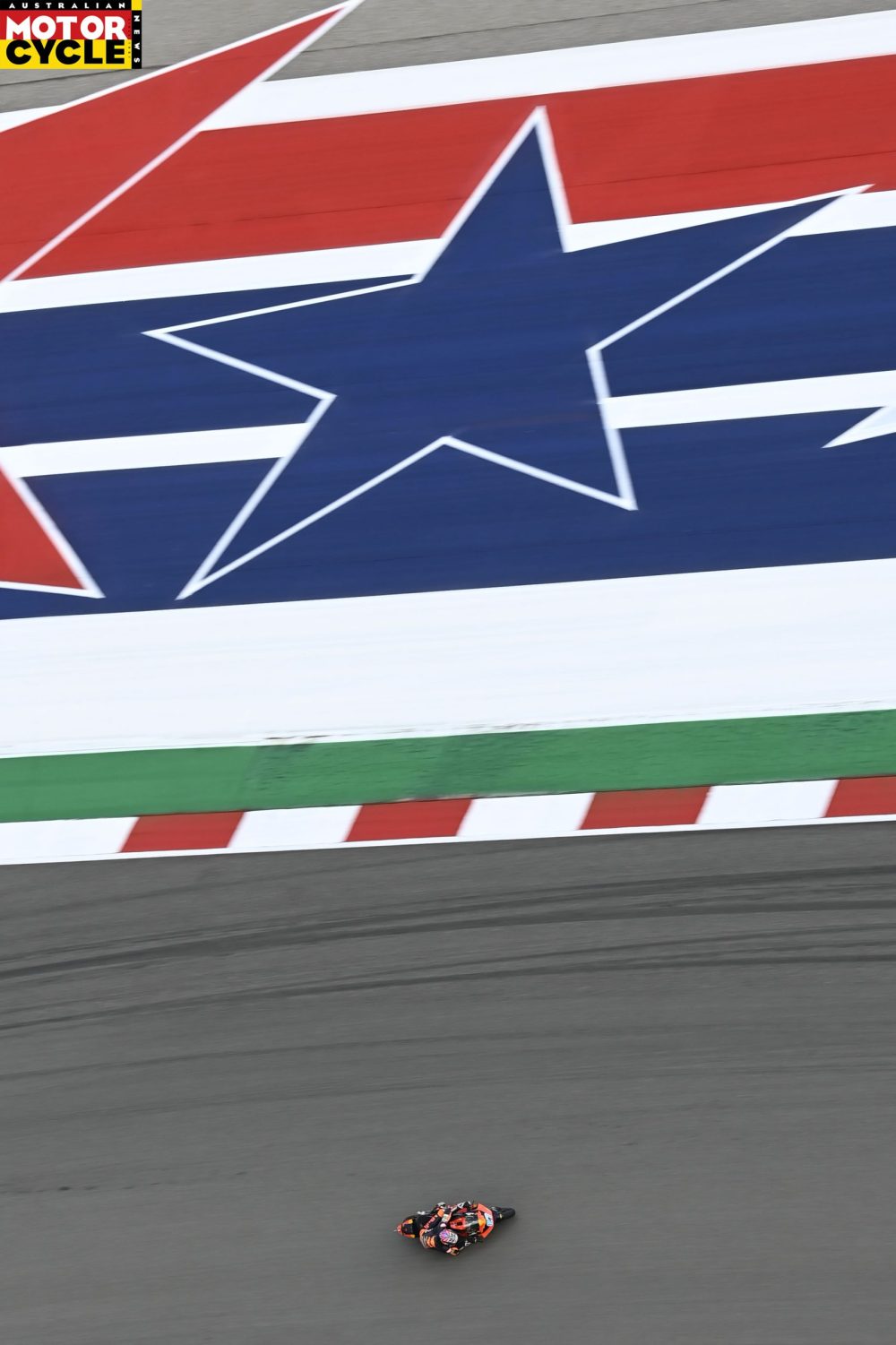
“The last quarter was very tough, pressure-wise,” he said. “At Misano with all the rain, the double Long Lap Penalty. I still brought home seventh. On the bad days I still brought home good points. The experience helped out with that. That mistake in Austin definitely cost me wrapping up the championship before. But there was no point crying about it. I accepted my mistake, running in there too hot and getting some bad asphalt. You’re human. You make mistakes. You learn and move on.
“When the lead is coming down, sure you can be a bit more nervous,” said Branchini. “Maybe he tried to find a bit more on the bike. This isn’t his way. I think he’s better riding when he isn’t thinking so much. For many riders it’s complicated to manage everything when you’re fighting for the title, especially if the competitor is inside. He had to accept it. Raul is an incredible rookie. He made more wins in his rookie season than Marquez. You have to accept what happened. If it doesn’t happen, this is life. Remy understands that there is life outside this paddock.”
Ajo also cited the influence of Remy’s Spanish girlfriend Clara Möller in helping him remain grounded in these situations.
“I think he is emotional but in a good way and he really kept it under control this year very well,” said the Finn. “I think he maybe didn’t have the correct advice all the time in the past and he was also growing up. For sure there are many steps for people. For him it was when he came here with his father, who taught him many things, and the next step was him being together with Clara, his girlfriend and that’s for sure one key thing.”
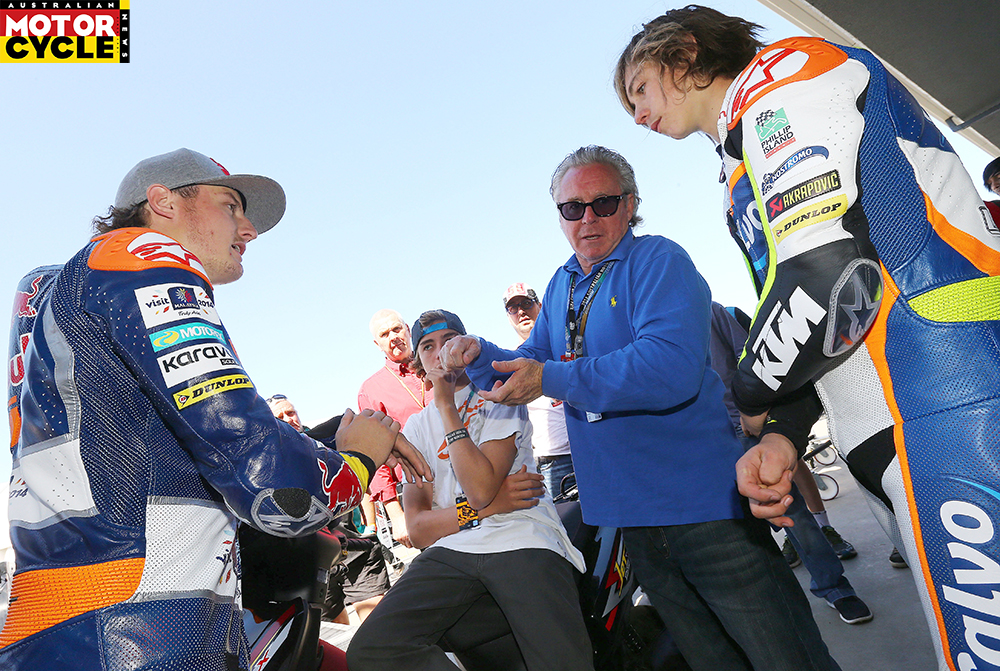
Coming out swinging
Despite Fernandez’s intense pressure, Gardner wouldn’t wilt. His fifth win of the season at the penultimate race in the Algarve GP was a performance worthy of a champion. He not only beat his adversary in a straight-up duel; he persevered with Dunlop’s harder rear tyre option, when Fernandez was showing exceptional speed with the soft. And all after he had broken two ribs in a huge Friday collision with Marcos Ramirez.
“Probably my best race ever was Portimao,” Gardner said. “That was the decider. Keeping my head there and just sticking with my guns with the hard tyre and believing in it and myself and having the speed. That was key. When the going gets tough, the tough get going. That’s what I used in my head in Portimao to finish that race.”
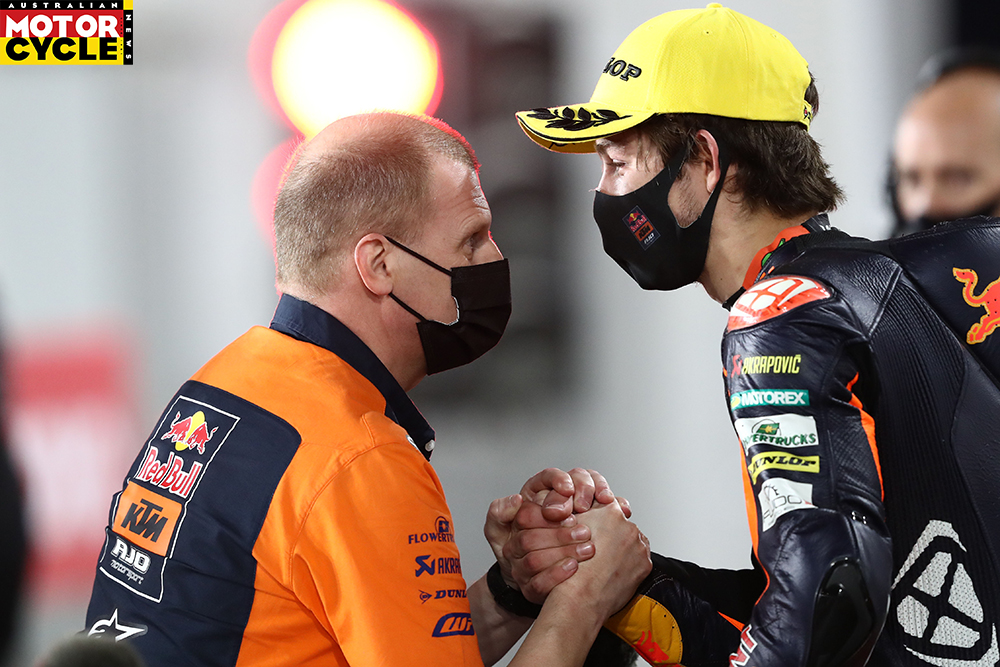
Branchini agreed. “In the crash on Friday he broke two ribs and did the race with that injury,” said the Italian. “Also, this was a crucial race. Raul on this track was very, very fast. It seemed he had everything to leave and go (to the front). Remy’s first target was to gain second place and lose less points as possible. And then the technical decision – choosing the hard tyre and trying to find the way with it. He had this crash, it wasn’t easy but he managed this hard tyre to be strong until the end. This is the best race he did – because of the stress, the pain and managing the rear tyre.”
That handed Gardner a 23-point advantage ahead of the final race, meaning a 13th place in Valencia would suffice. He duly wrapped it up. But celebrations were limited, as the Australian then travelled to Jerez for his first full MotoGP test.
So how does the Ajo team feel he is equipped to control a 270hp MotoGP machine?
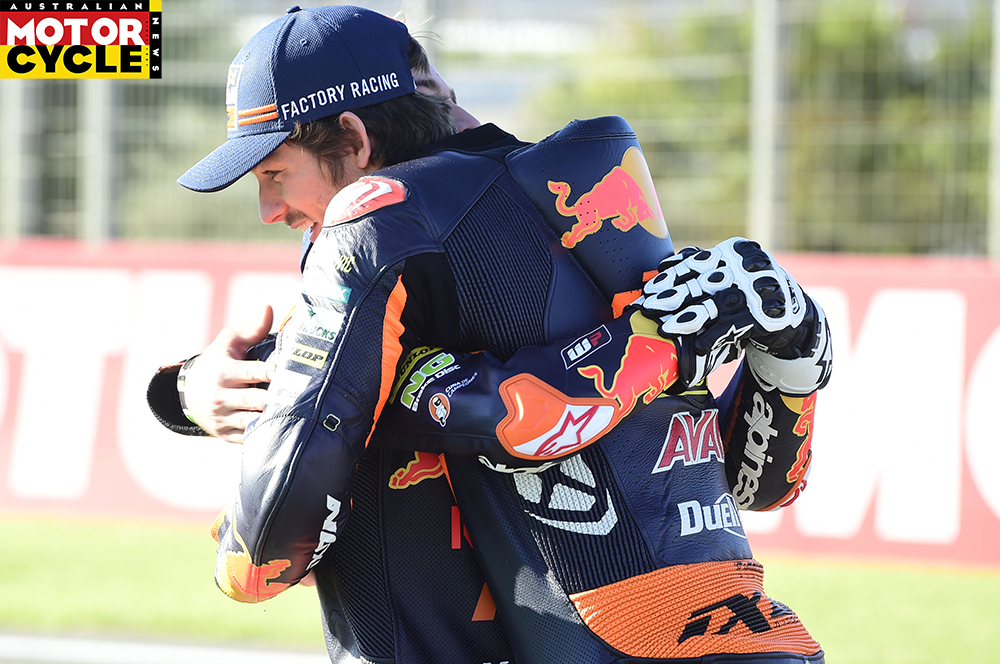
“A good point of Remy’s is to accept the bike and adapt to it,” said Branchini. “In my life I’ve worked with some riders that are really, really fast when everything is perfect. When something is 10 percent not perfect, they lose a lot. Remy isn’t like this. If the bike is too soft, he brakes a little bit early. He can adapt.
“In MotoGP, the most important thing is working with electronics. We have it in Moto2 but it’s nothing compared to MotoGP. In MotoGP, 95 percent of the job is around electronics. Remy is more a real rider. If he needs more engine braking, he pushes the rear brake and attacks more! I think it’ll come. He learns quickly. He won’t have a problem in MotoGP.”
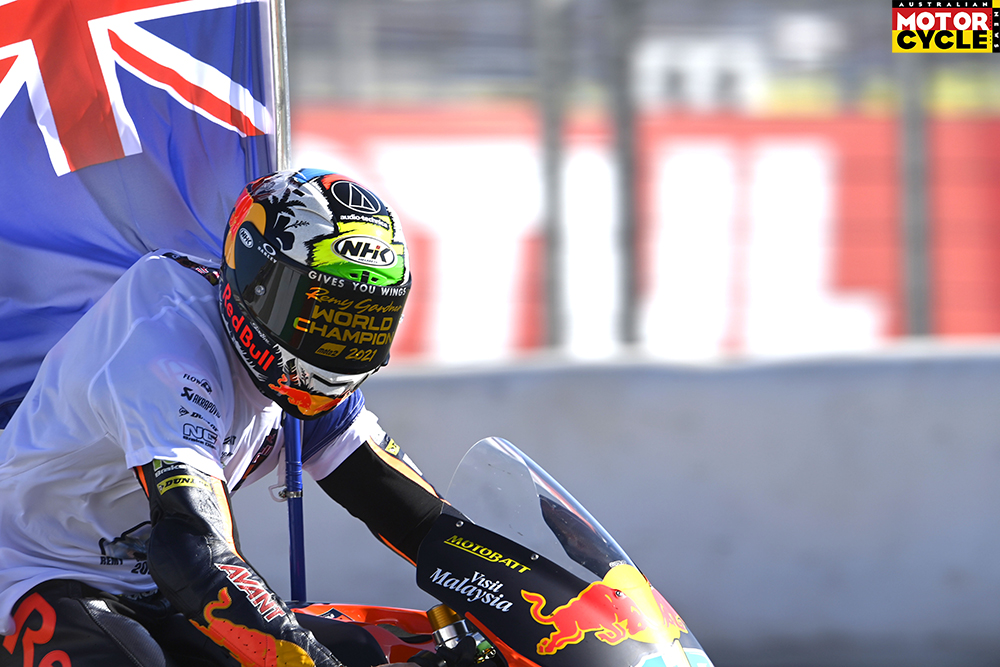
Interview Neil Morrison
Photography Gold&Goose and AMCN archives
